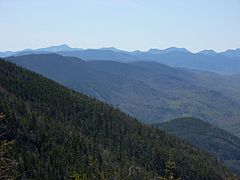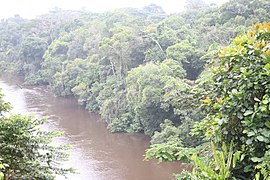User:Tierrador: Difference between revisions
mNo edit summary Tags: Mobile edit Mobile web edit |
m (→Etymology) Tags: Mobile edit Mobile web edit |
||
| Line 2: | Line 2: | ||
==Etymology== | ==Etymology== | ||
I was named after my dad who was named after my great uncle who fought in world war 2 | |||
==History== | ==History== | ||
''What is a general overview of your country's path through history?'' | ''What is a general overview of your country's path through history?'' | ||
Revision as of 17:33, 12 December 2023
Tierrador
Etymology
I was named after my dad who was named after my great uncle who fought in world war 2
History
What is a general overview of your country's path through history?
First era
How was your country originally settled?
Second era
What were the first political structures of your country? Did it have any very early rivals or was it controlled by a foreign country?
Third era
What were your country's first major moves on an international level?
Fourth era
Did your country ever have a period of significant decline or internal struggle?
Fifth era
Was your country subject to imperialism later in its life, or was it an imperial power?
Sixth era
How did the 20th century affect your country?
Geography
-
First lovely location
-
Second lovely location
-
Third lovely location
-
Fourth lovely location
-
Fifth lovely location
-
Sixth lovely location
What is the general explanation of how your country exists within the world?
Climate and environment
Is your country hot or cold?
Government and Politics
Tierrador is a federal semi-presidential republic. Its government center is in the capital Taisgol
Executive
Who is responsible for making high level choices in your country? Does it have a President or King?
Legislative
Who decides the laws for your country? Is there political parties and a legislature?
Federal subdivisions
Tierrador is divided into nineteen fully devolved regions, which are then separated into 75 provinces, all equally represented in the Senado de la República. For the Montaje Nacional, the body is made up by representatives determined by the populations of the provinces. Each of these regions were created by the Constitution of 1867, from the historical nine provinces, as it was regarded as much easier to govern the large nation with more devolution. These regions function as their own nations, where they are allowed to govern over their respective provinces, have their own parliaments and justice systems. They also possess partial fiscal autonomy, being able to create their own budgets and allocate resources for their Gross Domestic Products. In terms of defense, the Tierradorian regions have their own Regional Guard, which in turn is a division of the Tierradorian Defense Forces, and in the event of an armed conflict on Tierradorian soil, the Federal Government can temporarily dissolve and allow the regions to take control against the enemy.
Politics
What political factions exist? Who has ruled predominantly?
Law
What kind of laws and legal system does your country employ?
Demographics
What kind of people live in your country?
Ethnicity
Self-reported ethnic origin in the Tierradorian Republic (2021)
What ethnic groups make up your country?
Language
What language or languages do your country's people use? Are there any previously used languages no longer common? Are these languages native to your country or shared with another?
Religion
Religious affiliations in the Tierradorian Republic (2021)
What do your country's people believe in religiously, if anything? How many groups are there?
Education
How many people in your country are educated?
Culture and Society
What do your people do, and what are they like?
Education
What is your country's education system like? How do the schools work? What do people think about education?
Attitudes and worldview
How do your country's people view life?
Kinship and family
How are families or kinship groups structured in your country?
Cuisine
What do your people eat?
Religion
What do your people believe? Rather than demographics, as above, think about how important religion is to your people and their view about their own and other religions. What is the relationship between the prevailing view and minority religious groups? Is it an official religion, and do any laws exist about free worship?
Arts and Literature
What type of art do your people make? Do they have a tradition of painted art, well-crafted television shows, or great music?
Sports
Does your country have any major sports leagues? What types of sports are played, both professionally and for fun by your country's people?"
Symbols
Are there any prominent symbols which are well known to represent your country?
Economy and Infrastructure
How does your country's economy work?
Industries and Sectors
What are the largest parts of your economy in terms of what they do?
Currency
What exchange systems are used within your country's economy?
Healthcare
How do people in your country procure medical care? How is it paid for?
Labor
How is labor organized within your country? Are there any social institutions or unions which deal with labor concerns?
Transportation
How do people in your country get around? Is there a major highway system as well as sea- and airports?
Energy
What type of energy keeps your nation going? Are you renewable or use fossil fuels, and if you are renewable, how recently did your country transition?
Technology
How advanced is your country? Is it an innovator, or does it largely import new developments?
Military
How large is your country's military? Is it large but poorly equipped or small and elite? Does your country have a martial tradition?





